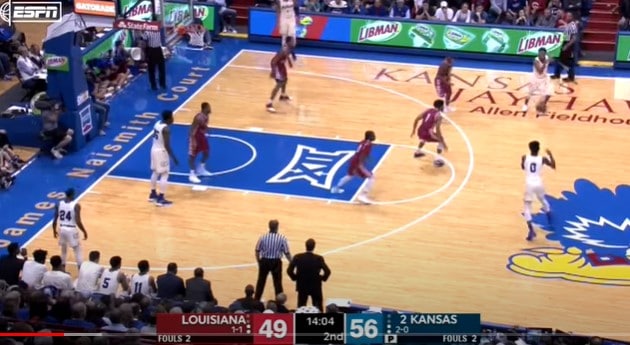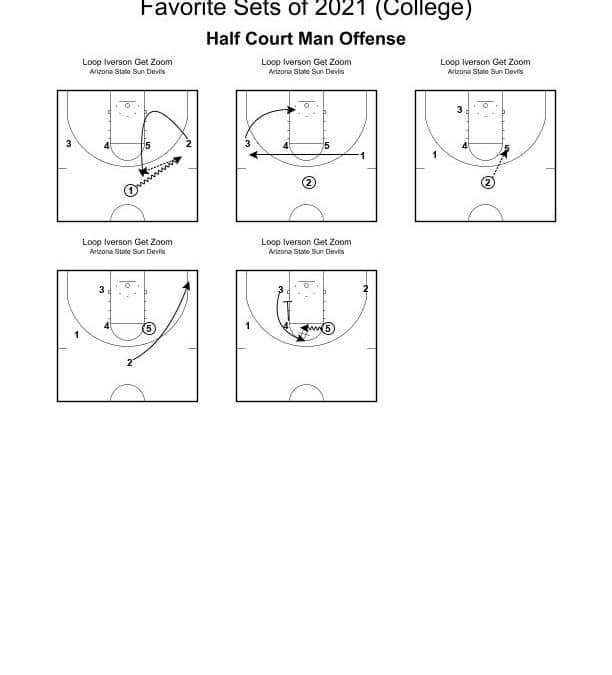Chicago Cubs Manager Joe Maddon: His 13 Core Principles of Managing
In the book, “The Cubs Way” by Tom Verducci, Joe Maddon, manager of the World Series Champion Chicago Cubs, shares with us his 13 core principles of managing.
1. Make a personal connection first – everything else follows
Chicago Cubs Manager Joe Maddon said, “You want to impart information, knowledge, methods, and how-tos. And that’s a lot of people’s first thought going into a new moment. For me, my first thought is to get to know you. Then we trust each other. And then we can exchange ideas. Then we can go there, but if you try to go there before all this other stuff has been established, a lot of this fertile seasoning lands in bad spots, in infertile areas and all of a sudden, it’s going to go away.”
How do you create that connection?
“You do that by conversation, by talking. ‘How is your family? What are you thinking? Where are you from?’ All kinds of personal questions. Just get in there a little bit and find some common ground. And as we keep moving along, from that there are going to be these moments in baseball where I’ve got to be brutally honest with guys. I think over a period they know you’re straight up with them because baseball players want straight up. They don’t want any sugar-coating. When a player finally understands that, if I tell you the truth you may be upset with me for a week to 10 days. But if I lie to you, you’re going to hate me forever. What eventually occurs after that is that we’ve arrived at this point of trust. Now I can be constructively critical, and you are not going to push back. You are not going to think I am picking on you. And it works both ways. If you are upset with me, I want you to tell me, and you are going to know that I’m going to accept the constructive criticism.”
2. There is only one team rule (Respect 90)
90 = number of feet between bases.
The slogan means that good things happen to those whose give respect and run the bases hard all the time.
“Chicago Cubs Manager Joe Maddon said, “Whatever you put out there will come back to you.”
3. Freedom is empowering
Chicago Cubs Manager Joe Maddon has only the one rule: “Respect 90.” It’s because he believes that regulations prevent people from reaching their potential.
“I believe in freedom. I don’t believe in over-managing. I don’t believe in micromanaging. I believe in players being players, players being themselves, playing without restrictions. I never want to coach instincts out of you. I want you instincts to soar. The more you restrict freedom, the more you restrict creativity. To restrict creativity, which a lot of people do unknowingly, you are losing out on a tremendous opportunity to find out how good someone is. When you attempt to create a contrived version of somebody before permitting that person to show you what they are, you’re automatically setting restrictions.”
Chicago Cubs Manager Joe Maddon said, “If I ever coach instinct out of a player, shame on me, man. Shame on me. That may be the mortal sin of coaching, to limit or inhibit somebody’s intrinsic abilities out of them.
That would be awful. And that comes primarily from anger, when you get angry with somebody, when you don’t attempt to understand why they’re doing that and where they’re coming from, or you want to enact your mores on them because you think your way of doing something is the only way to do something, that’s the only way that’s right.
That’s dangerous thinking. It’s inhibiting. It’s restrictive. It doesn’t work with baseball teams; it doesn’t work with countries, it doesn’t work in society. It just doesn’t work.”
4. Never hold a team meeting in your home clubhouse
Chicago Cubs Manager Joe Maddon believes that team meetings are a reaction to adverse events. To hold those meetings in a space that should be a positive atmosphere just “poisons the room.” It then creates a negative connotation when meetings are held there…similar to being called into the principle’s office…you just assume the worst.
“97% of team meetings aren’t necessary. I think a lot of it is for the show. A lot of times when a manager gets upset like that and has to have a meeting, it’s for his feelings and also to produce the effect to say, ‘I had a meeting, and I got suitably angry because the guys aren’t winning.’ Anytime you blow up on your guys publicly, I think it’s to protect yourself. I refuse to do that.”
“I prefer meetings by players, among each other. I prefer that. I like when players to talk to one another more than when coaches address them. I like my coaches meetings when they talk pre-series. It’s empowerment too. But I think if there’s an issue when it comes to players talking amongst each other I think it’s more impactful.”
Click here to download this article
5. Do not have a fine system
Chicago Cubs Manager Joe Maddon seemed to have a fine system when he began managing in Tampa Bay, but he chose to consider it as an educational and team-building exercise. Maddon would write the names of certain bottles of wine on slips of paper, fold the slips, and place them in a jar that he kept in his office. If a player violated a principle of the game Maddon thought deserved a fine, he called the player into his office after the game and asked him to pick a piece of paper from the jar. The player would have to buy the bottle listed and bring it to the clubhouse.
“I was trying to make a point and make it fun.”
6. Wear whatever you think makes you look hot
Chicago Cubs Manager Joe Maddon is famous for arranging themed trips a few times each season on getaway days.
He began the tradition in Tampa Bay, where he asked the entire team to dress in costumes to match a theme he picked, such as Miami Vice, Johnny Cash, and varsity lettermen.
Chicago Cubs Manager Joe Maddon said, “There were a lot of times guys wouldn’t even dress up. They thought it was silly, unprofessional. I never worried about that. That’s fine. You don’t have to do it, then don’t worry about it. But I can promise you the guys that didn’t do it weren’t the team guys we were looking for. I promise you that. It’s a method where you are building camaraderie, the team building situation…All these little things that you do every day serve the bond bring people together.”
On an everyday basis, Chicago Cub Manager Joe Maddon has no rules at all about how players should dress. He does tell them in spring training that they should wear “whatever you think makes you look hot.”
7. Empower your coaches
“Empowering the coaching staff is huge because I had been in a situation where the coaching staff was not empowered. I never felt not empowered myself. I think that’s something you feel if you lack self-confidence, the fact that you’ve not been empowered by somebody. But if you have self-confidence, nobody can ever take that power away from you. But I’ve been around guys I know who felt a lack of power because the manager would not give them specific things to do or they felt they were not being listened to. And that never bothered me. Never. Because I was always very confident in what I did and my opinions. But I listened. And getting in that position, I never wanted to be that guy who made my coaching staff feel like they couldn’t say what was on their mind.”
“My thought was, anytime anybody shows up to work they need to feel as though they can make an impact. And if they feel like they can make an impact and they feel a part of this thing, then when things don’t go well, they can’t jump ship and can’t-do the infamous backstabbing. They can’t-do that because they’ve been part of the planning. Now if you exclude them from the planning, and you have these moments when things don’t go so well, that’s when guys jump ship.”
8. But don’t allow your coaches – or veterans – to be harsh on young players
“I saw it when I first got to the big leagues. I thought some young players’ abilities were being negatively impacted by veteran players, managers, and coaches. They were subduing the personalities of these young guys, whether by making fun of the way they dressed, being hyper-angry at mistakes, intolerant of mistakes. Definitely, young players had a big target on their back. The more veteran players had a smaller target on their back. The way the rookie mistake was treated always bothered me. I saw guys who had been playing for seven years making the same mistake, but when it’s a rookie mistake, people think it requires a heavier hand than the guy who’s been doing it for seven years. It bothered me. If you want these young guys to play as well as they can quickly, then you’ve got to change your approach with how you deal with them. You have to permit them to be themselves, and, of course, like everybody else, if they mess up they have to be told about it, but you don’t to get hyper-angry with them or send them back to the minors or explain it to them in a way that absolutely fractures their self-confidence.”
9. Question data with feel
Chicago Cubs Manager Joe Maddon said, “All this different stuff that’s available is good, and I believe in it, but you’ve heard me say it a lot in the postseason: I’ve got to feel it. I’ve got to feel what’s going on right now. And that’s why I don’t sit in the dugout. I’ve got to get up where I can feel everything because when you get isolated in this little cubicle, you don’t feel around you. I don’t like it. I don’t think I’m making as good of a decision. I’ve got to feel it.”
10. Pregame work is excessive
“Chicago Cubs Manager Joe Maddon said, “I think in the 80’s it became popular to get extra work in. Work, work, work. I think it can be counterproductive.
“If you stay off your feet longer, I think it benefits you. It’s nothing you ever did when you were kids playing. You didn’t go out there and practice 5 hours before you played the game ever.”
“I think the more rest you can give guys the better you are.”
11. Keep signs simple and to a minimum
Chicago Cubs Manager Joe Maddon said, “I don’t like them to give them signs. I like them to rely on their baseball instincts.”
Instead of constantly telling his player’s what to do via signals, he prefers to provide the information that will allow his players to make their own informed decisions.
12. A lineup card is all a manager needs in the dugout
Chicago Cubs Manager Joe Maddon said, “You use [the tablet] to get ready to do that, but when you’re out there, there’s no piece of paper that I could ask for that I don’t already have. I have two sheets with everything that I need to know for the game, so why do I need more?”
13. Forget “The Book.” Making the first or third out at third base is okay
Chicago Cubs Manager Joe Maddon has always been a different thinker. He has always encouraged looking at things differently. The problem Maddon sees with this long-held belief is that it encourages a passive mindset rather than allowing his players to think and play aggressively.
“It’s not about reinvention. It’s about trying to stay ahead of things especially when you’re managing the Rays. You have the limited payroll. You’re playing the Yankees. How do you beat them? If you try to go with the conventional, you’re going to get your brains beat in. They have a greater ability to win with tried & true than you do. You’ve got to figure out different angles or ways to get through all that. I know what I’m doing and why I’m doing it. I’m not trying to impress anyone.”
I am never really worried about people saying things like that. I hope that doesn’t sound conceited in any way. I mean there is self-confidence there, or it’s the fact that I know what I’m doing and why I am doing it. I’m not trying to impress anyone.”
“If guys are upset with me for some of the things that I do, I prefer they come and ask me why I do them, and I would tell them…There is always a reason behind it. I never worry about stuff like that. I never have.”





0 Comments